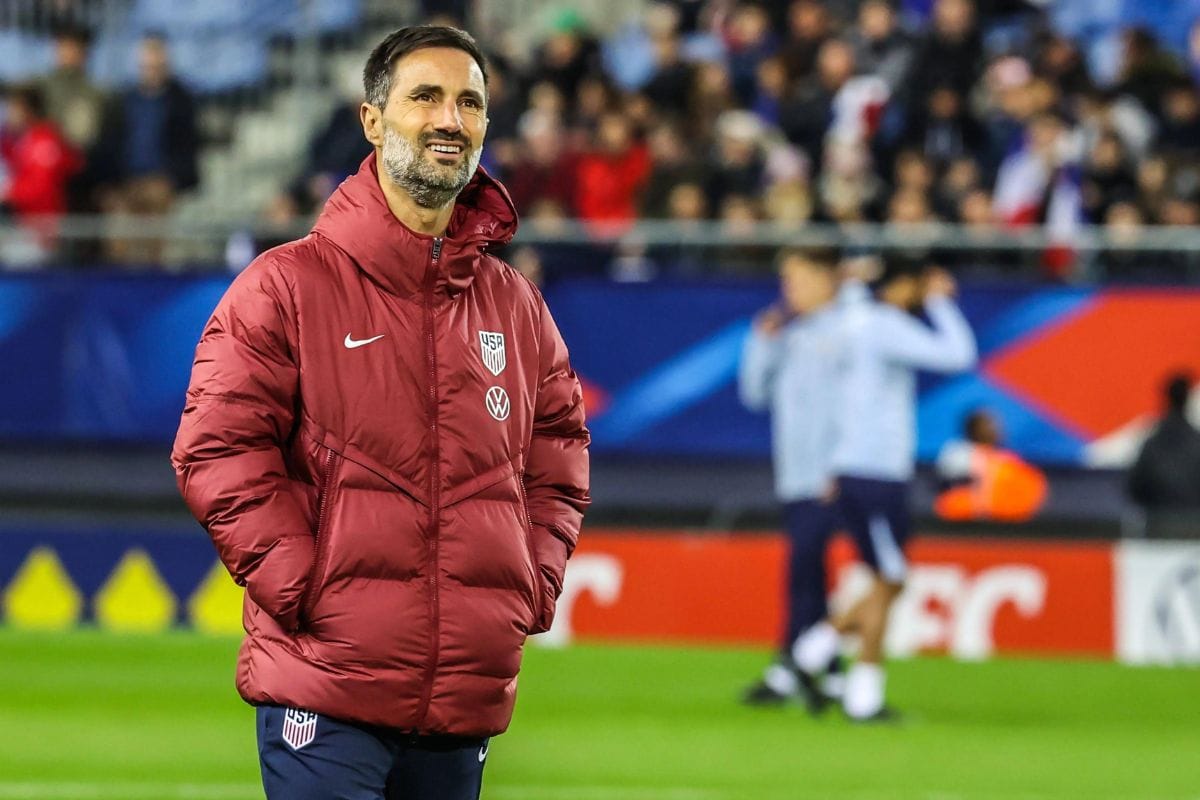The mountains were cooler.
Really, they were the ideal location for a preseason camp during the scorching Serbian summer. Marko Mitrovic was 19, on loan from his renowned parent club, Red Star Belgrade, and had some down time after dinner with his teammates in this touristy part of the country.
He told one of them when he noticed “a beautiful girl” in a coffee shop. She was sitting at a table with her two sisters, but there was an open chair. “And then I said, ‘Okay, this is my opportunity now.’ And then I went there, and I said, ‘This chair is meant for me.’ I don’t know what was her impression, probably look at me like, ‘Who is this crazy guy? Now we are 25 years married,’” he said.
In a conversation with Backheeled, Mitrovic was clear that his career as a player and then coach unfolded organically. Even the way he met his wife, Marija, who would join him on this journey, was a remarkable roll of the dice.
Now, along with their three children, they are all American citizens. And on Wednesday, Mitrovic, 46, will manage the U.S. men’s Olympic team – returning to the world stage for the first time since 2008 – for their tournament opener against the formidable host nation, France.
While the senior team’s Copa America group stage exit remains a cloud over the program, Mitrovic and his squad, one composed of U-23 players with three exceptions, can restore confidence in its future.
So, how did a boy from Belgrade attain this American dream?
Introducing your 2024 #OlyMNT Olympic Roster, as called by Marko Mitrović 🇺🇸 pic.twitter.com/x6M4DjQOX3
— U.S. Soccer YNT (@USYNT) July 8, 2024
Belgrade roots
Mitrovic was born and raised in Belgrade, Serbia, the country’s largest city and also the capital of the former Yugoslavia. Marko is the youngest child in a family more academic than athletic. Like their father, Stanko, Marko’s older brother Vladimir is an engineer, while his older sister Jelena is a surgeon. His mother, Jelica, has a background in Serbian language.
Mitrovic was an excellent math student, attending Belgrade’s Mathematic Grammar School. But the passion that would really shape his life was evident from the time he was nine months old and walking, with a soccer ball glued to his feet. Mitrovic fondly remembers his childhood spent “all day and night on the street playing soccer.” He always supplied a ball, and would practice with the wall if his friends weren’t awake yet.
There were more than enough players just in his apartment building, and while they blended in some basketball, running, and tennis on a makeshift court, soccer was supreme.
And in terms of an organized environment, the academy of local club Red Star Belgrade, then a European powerhouse, seemed like an ideal option.
Red Star won the 1991 European Cup as well as the 1991 Intercontinental Cup. Mitrovic, a central midfielder who could also be deployed wide because of his pace, signed his first contract a few years later when he was 15 and debuted at 17. But he never established himself with the first team.
“I’m still trying to figure out what happened to me and my career because I had high expectations and I think that everybody around me had high expectations. I was profile of the player that actually, in today’s game [would be useful] – I was very technical, I was very fast, just my approach, always I was hard-working, I was very team-oriented, never selfish,” Mitrovic said. “Maybe that’s part – like in a game that today, you have to be a little bit more selfish no matter if it’s team sport or not, and put yourself under the spotlight.”






